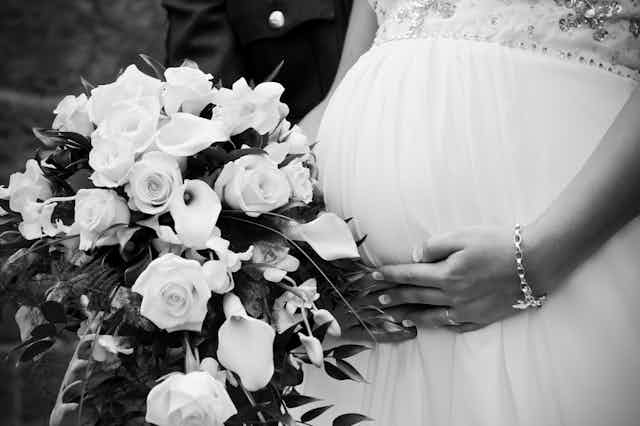In Indonesia, one out of nine girls marry before their 18th birthday. It’s a statistic that puts Indonesia in the top ten countries with the highest number of child brides.
Last week, the Indonesian parliament agreed to raise the minimum age for women to marry from 16 to 19 years old in an attempt to curb child marriage.
Even though that decision is an important step towards ending child marriage, lessons from India prove it is not enough.
In India, child marriage persists even though the legal age for women to marry has been 18 since 1978.
India has the highest absolute number of child marriages in the world due to various factors, including the lack of access to education and rigid gender norms.
To protect girls from child marriages, various studies have suggested at least three actions:
- providing access to formal education
- educating youth on reproductive health and rights
- promoting gender equality at grass-roots level.
Providing formal education
Raising the minimum legal age for women to marry to 19 years provides more opportunities for girls to finish high school before they tie the knot.
Research has shown the importance of higher education to prevent child marriage. As education increases child marriage decreases.
In Indonesia, the 2012 National Social and Economic Survey shows senior high school graduates are less likely to get married than junior high school alumni.
Keeping girls in schools longer prevents them from becoming child brides. It will also bring economic benefits not only for themselves but for the country.
An unpublished report from UNICEF Indonesia shows highly educated women will have better chances to secure jobs. In the end, this will contribute to the country’s economy.
To keep young girls at school and prevent them from marrying early, the government should make sure girls receive their 12 years of compulsory education.
Sex education
Research by the Credos Institute in 2017 in Rembang, Central Java, shows the lack of information for children on sexual reproductive health and rights is one of the reasons child marriage continues to happen.
Many children in Indonesia do not know that having sexual relations may lead to them being pregnant and forced to marry their partners.
Research in 2016 by a local NGO representing youth, Aliansi Remaja Independen, shows seven out of eight girls in Jakarta, Yogyakarta and East Java admit they had unplanned pregnancies prior to their marriage.
The fertility rate for Indonesian women aged between 15 and 19 was 47 births per 1,000 women in 2017. That’s much higher than India’s 23 births per 1,000 women.
Little do the girls know that early pregnancy would increase their chance of dying – twice as high as for those who become pregnant in their 20s.
Sexual education in Kenya, Peru and Pakistan has helped reduce child marriage and unplanned pregnancies. Classes on sexual education in those countries are comprehensive. Children can learn about issues of human rights, gender inequality and power relations in relationships.
The Indonesian government should provide comprehensive sexual education by including it in the school curriculum.
Read more: How to teach sex education in Indonesia: academics weigh in
Promoting gender equality
Girls are more prone to child marriage due to society’s perceptions and expectations of girls in domestic roles.
According to the Credos Institute’s 2017 research, girls are considered ready to marry when they are able to take care of the family. For boys, it is really up to them. Mostly, boys think they are ready when they feel they are economically independent.
This expectation may be stronger in rural areas, which is possibly one of the reasons the rate of child marriage is higher there than in urban areas. The 2012 national survey found the rate of child marriage in villages was 29.2%, compared to 19% in cities.
The government should work more closely with civil society organisations to promote gender equality.
Addressing taboo
Another reason child marriage is still common in Indonesia is that the public’s fear of adultery has become stronger in line with rising conservatism.
Conservative groups have created movements to support early marriage as they think it provides protection from the sin of adultery. One such movement is Indonesia Tanpa Pacaran (Indonesia without dating), which encourages youths not to date and to marry as soon as possible.
This public pressure is evident in a 2019 study of why parents ask for dispensation for their daughters to marry in Tuban, East Java; Mamuju, West Sulawesi; and Bogor, West Java.
The study shows parents seek permission to marry their daughters before the legal age because they worry their children will commit adultery, especially when their children are in relationships.
We can overcome this problem by working at the grass-roots level with the relevant community.
In West Lombok, for example, where the rate of child marriage is relatively high at 25%, young people are working together with village-level institutions. They advocate for funding to protect young girls from being married early by providing information on reproductive health and rights.
Child marriage is a multifaceted issue that requires concerted efforts from various sectors.
A national strategy that covers all of these issues would better help reduce the numbers of child marriages in Indonesia.


